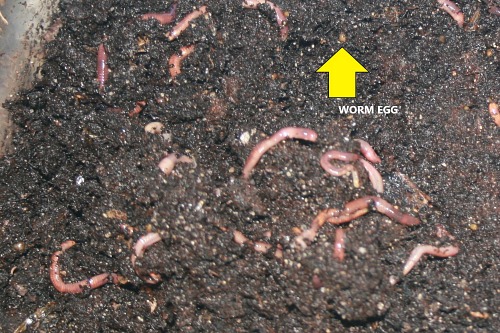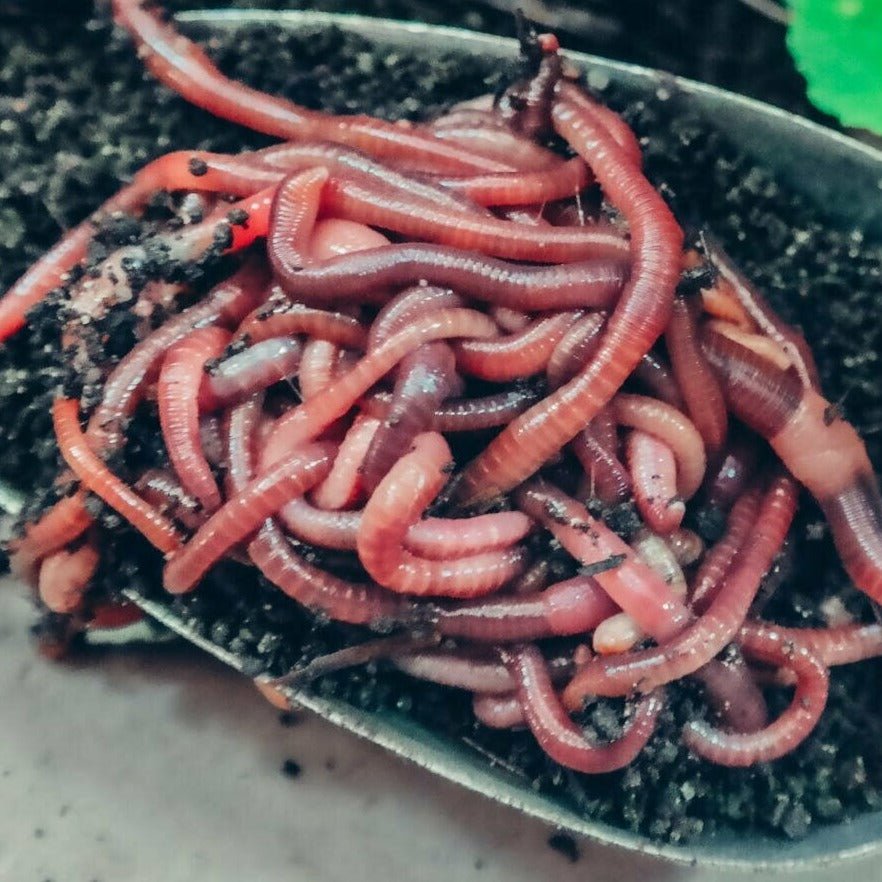Red Wigglers 101: Every Little Thing You Need to Know for Thriving Gardens
Red wigglers, or Eisenia fetida, play an essential duty in lasting gardening techniques, working as effective decomposers that transform natural waste into valuable vermicompost. Recognizing their environment, dietary choices, and the myriad advantages they provide can transform your horticulture approach (Red Wiggler Express). As these worms prosper in specific conditions, their treatment and administration are crucial for maximizing their contributions to dirt health and wellness. The inquiry continues to be: what actions can you require to harness the full possibility of these exceptional microorganisms in your very own garden?
Recognizing Red Wigglers

Red wigglers flourish in settings abundant in organic material and dampness. Red Wiggler Express. They possess a special digestive system that permits them to refine food scraps rapidly, eliminating spreadings that are packed with necessary nutrients such as nitrogen, phosphorus, and potassium. These castings enhance soil framework, improve water retention, and foster helpful microbial activity, all of which contribute to robust plant health and wellness
Furthermore, red wigglers can survive in diverse conditions, making them versatile to various horticulture techniques, including interior and outdoor composting systems. Their ability to eat big amounts of natural waste everyday positions them as beneficial allies for both home gardeners and business growers. By incorporating red wigglers right into horticulture initiatives, one can dramatically enhance dirt fertility and support sustainable gardening practices.
Ideal Environment for Red Wigglers
Developing an optimum setting for red wigglers is vital for maximizing their composting abilities and general health and wellness. Red wigglers grow in moist, dark, and well-aerated habitats, which carefully resemble their natural surroundings in fallen leave clutter and rotting raw material. An ideal environment must give a temperature level variety in between 55 ° F and 77 ° F(13 ° C to 25 ° C), as extreme temperature levels can emphasize or damage the worms.
The bed linens product, such as shredded paper, cardboard, or coconut coir, ought to be maintained wet yet not overly wet, as extreme moisture can result in anaerobic problems destructive to worm health and wellness. In addition, a pH degree in between 6.0 and 7.5 is ideal, making certain a well balanced atmosphere.
Appropriate aeration is similarly vital; it permits oxygen blood circulation and prevents the accumulation of dangerous gases. A container or container developed for vermicomposting must have water drainage openings to remove excess wetness and advertise airflow. Routine monitoring of these problems is vital for maintaining a thriving red wiggler populace, ultimately improving their performance in damaging down natural waste and enhancing yard soil.
Dietary Demands and Preferences

Red wigglers show particular preferences; they are particularly warm of softer, decomposing materials over tougher or more fibrous substances. It is necessary to prevent feeding them citrus peels, onion, and garlic in big quantities, as these can be unsafe. Furthermore, meat, milk, and oily foods must be excluded, as they can bring in parasites and develop undesirable smells.
(Red Wiggler Express)To preserve optimal wellness, a well balanced mix of eco-friendly and brownish products is suggested. Eco-friendly materials, such as vegetable scraps, supply nitrogen, while brown materials, like cardboard and dried out fallen leaves, supply carbon. Checking the wetness material and making sure a regular food supply will even more improve their growth and composting abilities. By catering to their nutritional requirements, gardeners can cultivate a thriving population of red wigglers in their garden compost systems.
Benefits of Utilizing Red Wigglers
The impressive advantages of using red wigglers in gardening extend far beyond their duty in composting. These flexible microorganisms contribute dramatically to dirt health, enhancing vitamins and mineral availability and promoting microbial task. By aerating the soil as they delve, red wigglers enhance water drainage and origin infiltration, creating an ideal atmosphere for plant growth.
Additionally, red wigglers are reliable recyclers of natural waste, converting it into nutrient-rich castings that work as an excellent natural fertilizer. These castings contain useful microbes and vital nutrients, such as nitrogen, phosphorus, and potassium, which are important for plant development. The slow-moving launch of nutrients from worm spreadings ensures a steady supply, decreasing the risk of nutrient leaching and promoting sustainable horticulture practices.
Utilizing red wigglers promotes a more sustainable gardening method by lowering dependence on chemical fertilizers and advertising a closed-loop system, where waste is transformed right into important sources. Overall, incorporating red wigglers into horticulture practices uses a wide range of environmental and agricultural advantages.
(Red Wiggler Express)
Composting With Red Wigglers

To launch a successful vermicomposting system, pick a suitable container with correct ventilation and drainage. The optimal atmosphere for red wigglers consists of a wet, dark setup with temperatures in between 55 ° F and 77 ° F. Begin by layering shredded paper, cardboard, and food scraps, guaranteeing a well balanced mix of carbon and nitrogen-rich materials.
Red wigglers thrive on veggie peels, fruit scraps, coffee grounds, and eggshells, while staying clear of meat, dairy, and oily foods that can draw in pests. On a regular basis monitor dampness levels; the bed linen ought to perspire however not soggy. Harvest worm spreadings every few months by separating the worms from the compost, which can then be made use of directly in yards or kept for later use.
Applying vermicomposting not only reduces garbage dump waste however additionally enhances garden soil, advertising healthy plant growth and lasting horticulture techniques. Embrace this eco-friendly method to enhance your gardening undertakings.
Final Thought
In recap, red wigglers company website are essential organisms for improving yard performance with reliable composting. By using red wigglers, gardeners can considerably boost dirt high quality and nutrient accessibility, fostering much healthier plant development.